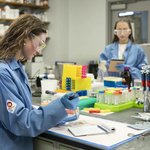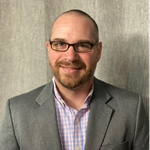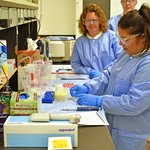Expert Faculty
Our expert faculty consists of current and former forensic science professionals who bring real-world experience and offer valuable connections to forensic organizations nationwide.
Start your journey in forensic science at an R1 research institution with Syracuse University’s Forensic and National Security Sciences Institute. Enroll in one of our undergraduate or graduate programs and develop exceptional scientific skills, ethical practices and the knowledge and ability to become an engaged leader in the field of forensics.
Our mission is to educate and prepare the next generation of highly qualified forensic practitioners, perform innovative scientific research to develop and support emerging forensic science technologies and collaborate with practitioners in government, private industry and academia to promote and advance the fields of forensic science and national security.
Our expert faculty consists of current and former forensic science professionals who bring real-world experience and offer valuable connections to forensic organizations nationwide.
With over 30 specialized forensic science courses, students gain hands-on experience using cutting-edge tools and technologies.
The Forensics Institute offers nine distinct academic programs tailored to various forensic science specialties.
Graduates are prepared for positions in crime laboratories, medical examiners’ offices, private companies and federal agencies. Pursue a career as a:
*Note: For students interested in forensic DNA analysis, it is important to note that certain courses (at either the undergraduate or graduate level) are required for laboratory positions in the U.S. These include coursework in molecular biology, biochemistry, genetics and statistics
Find your program fit today!
CBS News: "DNA testing methods questioned in Gilgo Beach murder case," Michael Marciano, professor of practice and director for forensics research
Forensics Colleges: "How is DNA Fingerprinting Used to Crack Criminal Cases?" Michael Marciano, professor of practice and director for forensics research
The Trace: "When Your Loved One’s Body Becomes ‘Evidence,’" Maria Pettolina, professor of practice
Scientific American: "How Forensic Breakthroughs Are Still Helping Identify 9/11 Victims Today," Kathleen Corrado, FNSSI executive director

(Dec. 4, 2025)
Evidence for SuccessForensic science students explore the benefits of pairing their integrated learning major with a complementary field of study.

(Oct. 30, 2025)
Engineering MicroorganismsA&S researcher James Crill receives contract to advance yeast engineering for use in challenging environments, helping address real-world manufacturing demands.

(Oct. 21, 2025)
Elevating Coroner Training StandardsSyracuse University forensics professor Maria Pettolina is leading New York State’s first comprehensive coroner training program to modernize death investigations, improve reporting and strengthen the accuracy of public health data across all 62 counties.

(Oct. 9, 2025)
Protecting the Power GridAmid rising global urgency around digital defense, Syracuse University faculty draw on real-world expertise to prepare the next generation of cybersecurity leaders.

(June 20, 2025)
Setting the Standard, Ensuring JusticeSyracuse University’s Forensic and National Security Sciences Institute hosted the nation’s first hands-on Next-Generation Sequencing training for state crime labs.